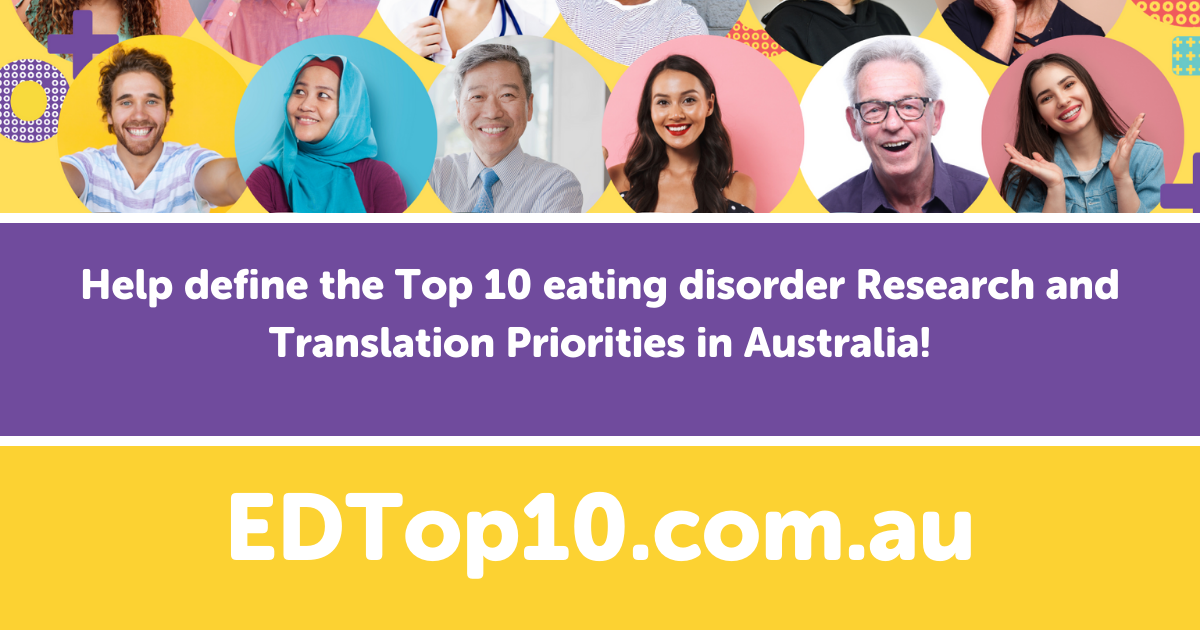Insights into self-help, AFRID in adults and eating disorders in men - InsideOut eating disorder researcher Dr Phillip Aouad continues his series on transformative and impactful findings in his field, and why they are important.
To improve our collective understanding of the world, research needs to build on itself in order to help us not only understand the big picture, but also the small details – including how we respond to various illnesses and issues.
You can read more about how researchers choose what to study in part one of my series.
Increasingly, what researchers choose to investigate is determined by how much it impacts people's lives.
I’ve created a list of ten of the most transformative and impactful findings in my field which you might find interesting to read about! (You can find the first five here).
ARFID in adults
As of 2013, a new category of eating disorder was developed. This category replaced a group of disorders that fell under “feeding disorder of infancy or early childhood”, which extended particular eating disorders (that were once thought to be exclusive to children) to adults as well. This recognition is vitally important, given that some eating issues that were previously thought to occur in children, actually continued (or even developed) into adulthood. Knowing about such issues helps us examine them more closely. Assessment tools, as well as treatments, for ARFID in adults have already begun to be developed and some are showing some promising results!
LGBTQIA+ - particularly transgender individuals and gay men - are more likely to have eating disorders
LGBTQIA+ individuals are disproportionately affected by eating disorders and body image issues - particularly transgender individuals and gay men.
Establishing preventative intervention for eating disorders, particularly among the LGBTQIA+ community, requires more research.
Focusing on LGBTQIA+ (and indeed other minority groups) allows us to directly address body image and eating issues in a targeted and appropriate way and increase support.
Eating disorders have high comorbidities
Eating disorders have high comorbidities (especially personality/mood disorders, depression, and anxiety).
Although such findings may seem small, they’re absolutely critical to our understanding of eating disorders and the connection they have to other mental health conditions.
In particular, this finding is Important to help us look more closely at conditions that may be exacerbating or be exacerbated by the eating disorder.

Self-help can be effective in reducing some symptoms or some presentations of eating disorders
Several reviews and studies have shown that - depending on several factors such as length and severity of illness - guided self-help can be effective as a first-line treatment for eating disorders.
Additionally, as part of considering our approach to eating disorder treatments, and looking at how to best treat eating disorders at different points/stages, this particular finding about self-help could really play a big role in a stepped-care approach to eating disorders. Meaning that individuals at different stages of an eating disorder would receive treatment based on where along they are on their recovery journey
More males experience eating disorders than previously thought
Males with eating disorders may be more common than we thought. It is estimated that eating disorders in males in Australia could be as high as 3%, which may not seem like much. But, considering there’s an estimated 12.5 million males in Australia, 3% of that is about 375,000 males (3% may even be an underestimate!).
This is absolutely a crucial piece of the eating disorder puzzle, it changes the way we create awareness and bring attention to the disorder; it helps in reducing stigma, supporting males, talking about the issues, and helping more people in need.

Determining the future of Australian eating disorder research
You can read the about more breakthroughs here.
In the meantime, you can help influence what eating disorder researchers focuses on!
InsideOut Institute is currently leading a project to identify the Top 10 eating disorders research and translation priorities in Australia, decided collectively by people who have a lived experience of an eating disorder, their family and carers, clinicians and researchers.
Now more than ever we need your help in setting out the roadmap that Australia will use for the next 10 years to drive eating disorder research forward and help us determine what problems need solutions.
To have your say, please take the 10 minute priority setting survey at EDTop10.com.au

